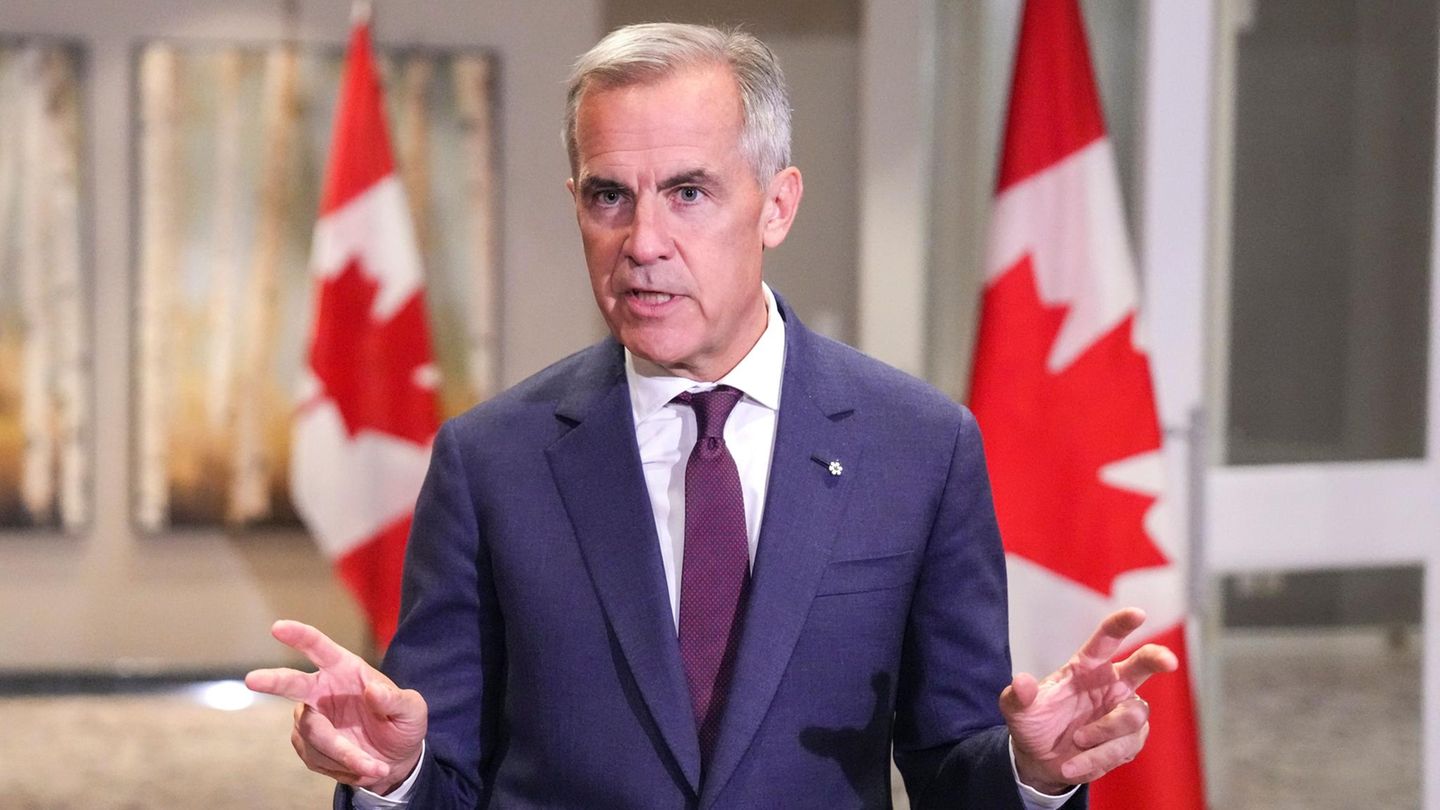Does the media suppress opinions and gamble with politics? That star-Interview with Richard David Precht and Harald Welzer provoked many reactions from our readers. Here are some of them.
“People don’t trust you anymore!” By “you” the prominent intellectuals Richard David Precht and Harald Welzer mean us: the media. The philosopher and the sociologist expressed in conversation with the star-Editors Tilman Gerwien and Tina Kaiser harsh allegations. For example, those who claim that the pluralism of opinion in Germany is only an illusion. Opinions that deviated from the “mainstream” were suppressed by the media. The interview with Precht and Welzer can be found here. The two men’s positions, set out more fully in a new book, have already met with clear opposition. And the letters to the editor that reached the editors about the interview were mostly critical. Here is a selection:
smug
Hard to beat in complacency and well-tempered ignorance. Here two men are talking in intimate togetherness and yet only completely overreact because on the one hand they dish out, but on the other hand they can’t take anything. So they try to cover up their failure with scolding journalists. And I like both of them!
Holger Patzwall, Duderstadt
Narcissistic hurt
In psychopathology, Precht and Welzer would probably be diagnosed with “paranoid disorders” after this interview. In fact, however, her crude allegations hide a narcissistic insult. Spoiled by success, they have been expressing themselves firmly on every topic for years, although they often lack expertise. Their simple expressions of opinion are always upgraded with the label “philosopher” or “sociologist”, and so competence has been suggested for years. Both protagonists are invited to all sorts of TV formats and also have the opportunity to express themselves extensively in the print media. By the way, they advertise their books for free just by being there. They are not used to being so clearly denied their sovereignty of interpretation. Now they pout and share. Should they take a break, complete a voluntary social year and leave the complaints to the really disadvantaged in society.
Nino di Bari, Dusseldorf
Correct analysis
A remarkable and in many aspects probably correct criticism by Precht and Welzer! In my opinion, it can also be read from the fact that the “leading media” do not, cannot, or are not allowed to report on the ubiquitous lobbying.
Andreas Kickstein, Plön
Just drivel
Unfortunately, the two top intellectuals deliver nothing but wispy, inconsistent drivel. It was delicious how the two interviewers could effortlessly refute each of their claims. 90% of all countries could be happy if they had our press landscape.
Gebhard Boddin, Hamburg
Nebulous
Less wafts of fog and a more understandably formulated reference to reality on the part of the interviewees would have been good for the conversation. I’m probably too stupid to understand the book.
Detlef Schmegel, Graefenhainichen
Off to Putin
I would like to ask Mr. Precht and Mr. Welzer: Should we have simply talked to Hitler, Stalin or other dictators in order to avoid the suffering of millions? I recommend Precht and Welzer to get an appointment with Putin to end the war he has unleashed.
Werner Mischke, Hamburg
Outstanding interview
Your editors did an excellent interview and let the “hot air” out of the authors – which was actually lukewarm at best.
Olaf Schulte, Walheim
Regrettable development
Precht and Welzer are self-confident intellectuals who move in spheres far removed from any closeness to earth. Precht’s development from a gentle, realistic philosopher to an aggressive boss is regrettable. And what about Welzer? Oh, his views have always been unworldly.
Annemarie Fischer, Wielenbach
Abused Right
The fight for Ukraine is not about ethics. It’s even less about responsibility ethics. It’s about the to be or not to be of Ukraine. Whoever, like Mr. Precht and Mr. Welzer, criticizes in such a situation that the Ukrainians are risking their health and their lives in the fight for their freedom and are thereby supported by democratic states in accordance with international law, is de facto taking the side of the aggressor Putin. Said academics and their fellow campaigners act naively in their own way in terms of ethics and/or blindly in terms of ethical responsibility and thus – as influential and powerful people in public life – abuse their right to freedom of expression. It’s no wonder that Precht and Welzer’s tirades met with almost unanimous rejection, not only from journalists.
Winfried B. Boczki, Bonn
prophets of our time
Publicists like Precht and Welzer resemble the great Old Testament prophets who, during their lifetime, were seldom understood by their contemporaries but were frequently shouted down, accused of defeatism, or even “put out of business.” As long as people like her im star have my say, I will continue to read it with interest.
Günter Winefeld, Berga
We switch
Precht and Welzer – if one of them appears on television, I change the program. A lot of my friends do the same on principle: you can’t see these narcissistic guys anymore. Above all, stop listening to them. Why did he have to star be part of this hype about the two?
Gernot Braun, Alsbach-Haehnlein
frustration and bitterness
Two elderly gentlemen with odd opinions who, I think, are bitter and utterly frustrated that, despite their popularity, few people share their opinions. Two people who complain that even the press, in all its diversity, does not report on dissenting opinions if they do not correspond to the mainstream. Just the fact that the star gives them enough opportunity to express themselves and to advertise their new book on four pages, but refutes the argument of the “conformist mass media”.
Ruediger Sauer, Oldenburg
Worked with assumptions
Why wasn’t the conversation “always pleasant”, as you write? The two gentlemen knew how to behave! Perhaps it wasn’t pleasant because the interviewers worked with assumptions that the two of them contradicted. Where I agree with you, is the idea that Mr. Welzer should write an email to Christian Wulff It’s never too late for an apology.
Angelika Zitzelsberger-Schlez, Heidelberg
Not understood
I’m a big fan of Richard David Precht, but I didn’t understand his media scolding. I am a responsible reader and form my opinion from different media such as radio, television and print media. They leave nothing out.
Marie-Elisabeth Giesecke
Typical journalists
I, too, have had the impression for a long time that we are threatened with media conformity. Messrs. Precht and Weizer confirm that. It’s typical that journalists go straight to the barricades.
Michael Schumacher, Giessen
No argument
The interview with the two authors is not a “discussion”. the star-Representatives don’t argue at all. From the formulations and accusations it follows that the arms are crossed and one stands passive-aggressively in the corner. The result was already clear at the beginning of the conversation, wasn’t it?
Stephan Eschebach, Marburg
Where were the tinfoil hats?
When I have to read how two grumpy do-gooders try to explain to the Ukrainians how easier their life would have been if they had negotiated (given up) in time, I really wonder where the two of them hid their aluminum hats during the interview. I can only think of a modification of an aphorism by Mark Twain: “First God created the idiots – for practice – then he created the moralizing philosophers.”
Wilhelm Kerber, Kiel
Source: Stern
David William is a talented author who has made a name for himself in the world of writing. He is a professional author who writes on a wide range of topics, from general interest to opinion news. David is currently working as a writer at 24 hours worlds where he brings his unique perspective and in-depth research to his articles, making them both informative and engaging.




